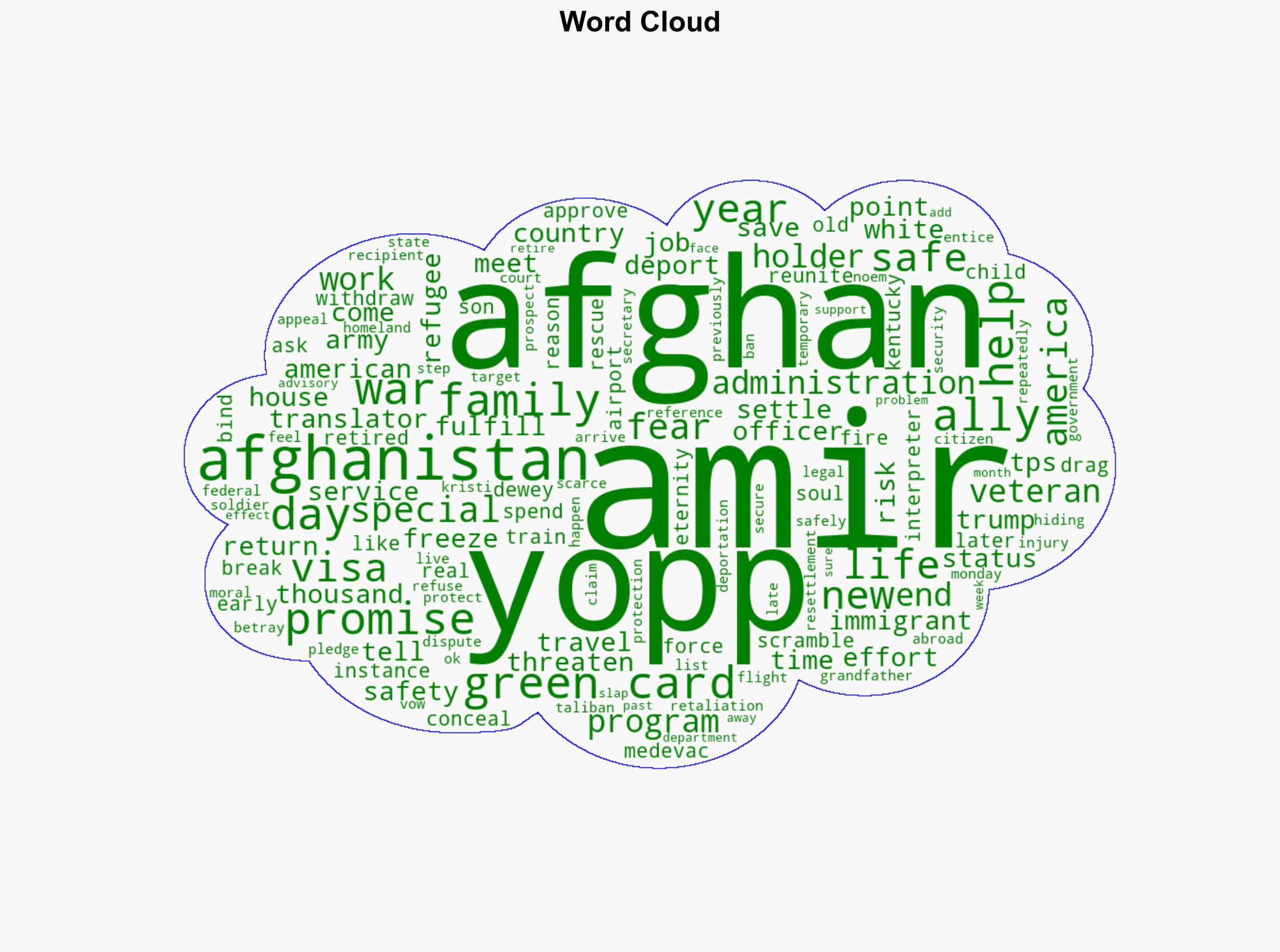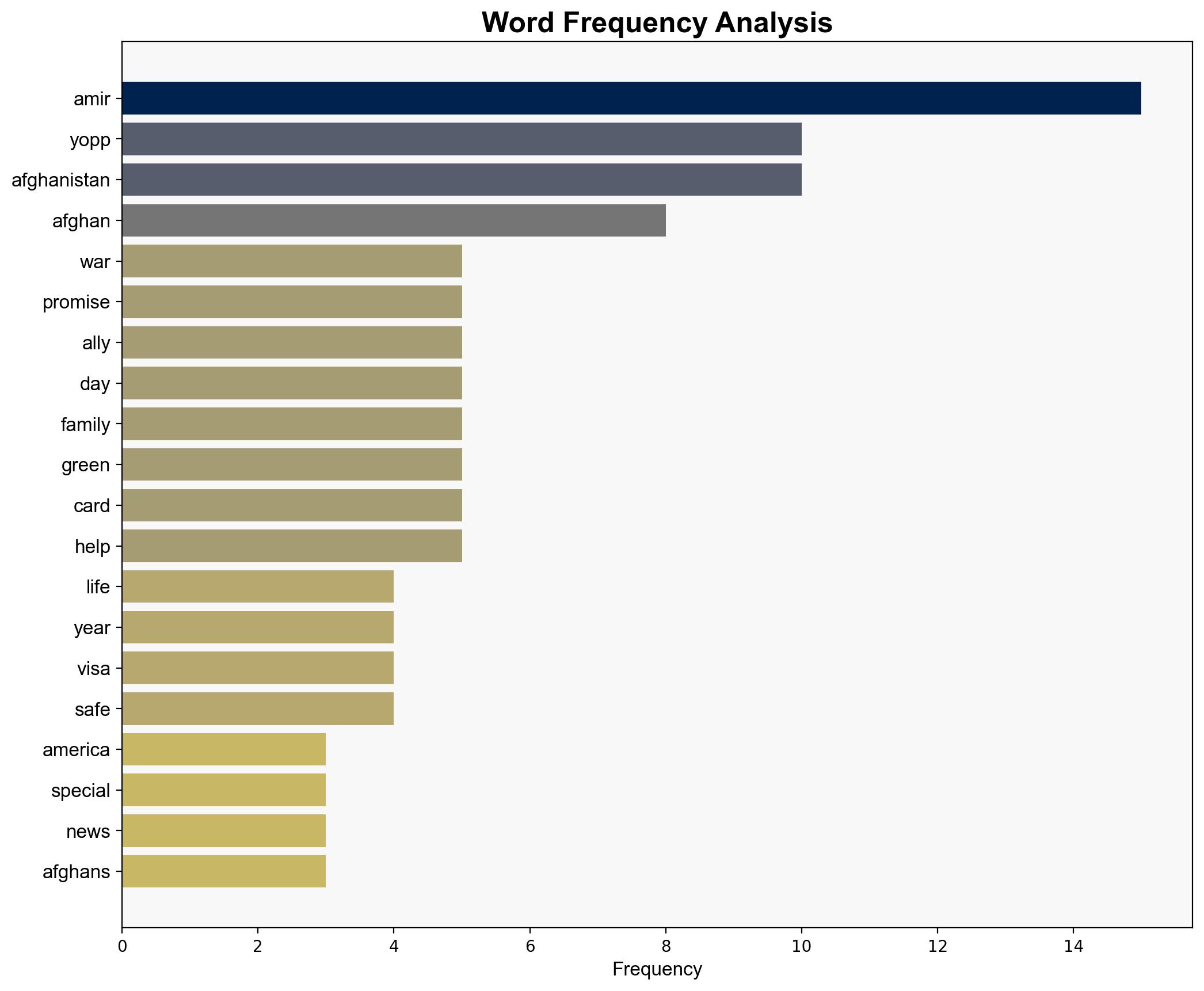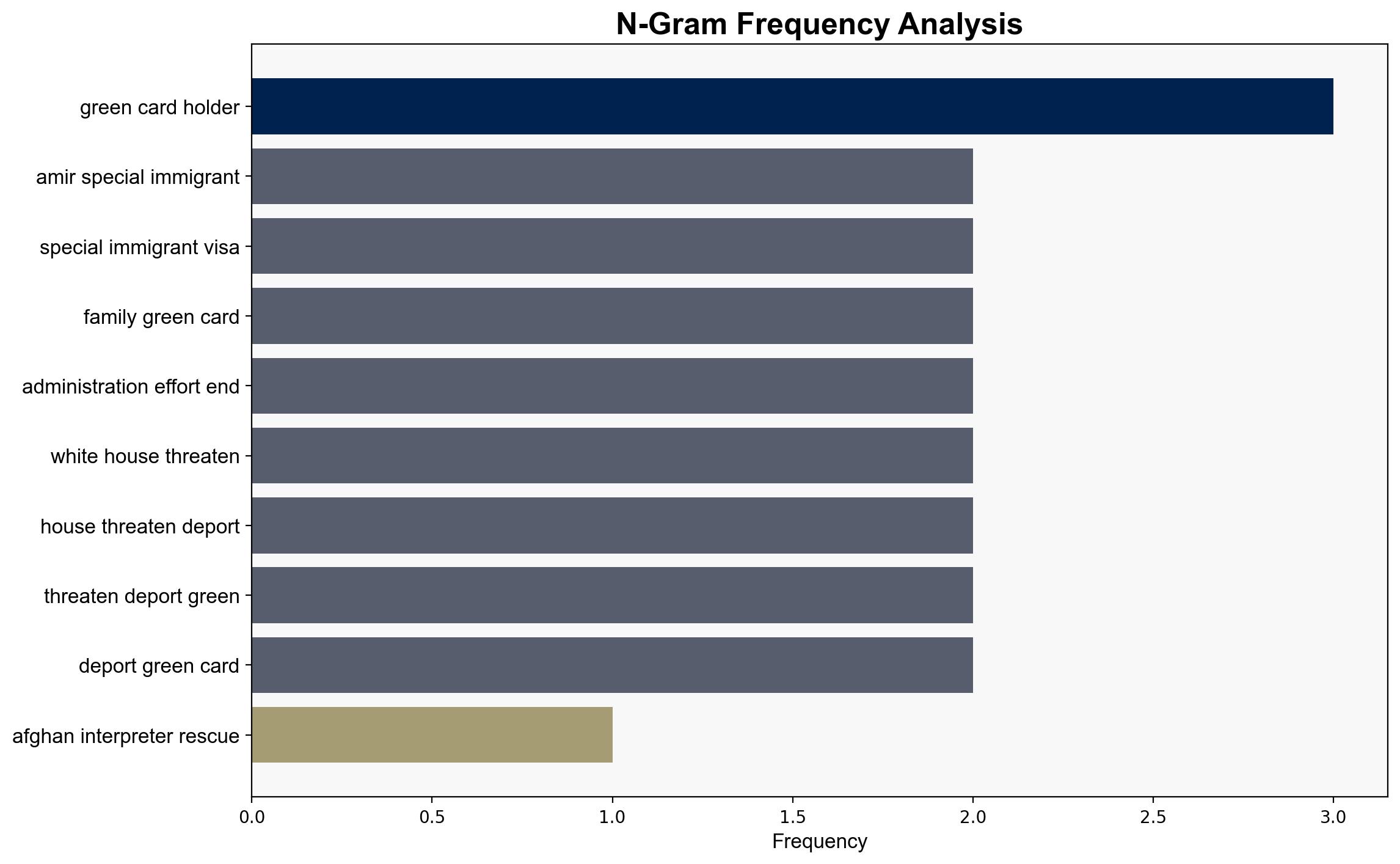Afghan interpreter who rescued US officer’s life during the war fears deportation – CBS News
Published on: 2025-07-24
Intelligence Report: Afghan interpreter who rescued US officer’s life during the war fears deportation – CBS News
1. BLUF (Bottom Line Up Front)
The report highlights the precarious situation of Afghan interpreters, like Amir, who assisted U.S. military efforts in Afghanistan and now face potential deportation from the United States. This situation poses a moral and strategic dilemma, potentially undermining trust with current and future allies. Immediate policy reassessment is recommended to uphold commitments to Afghan allies and maintain credibility.
2. Detailed Analysis
The following structured analytic techniques have been applied to ensure methodological consistency:
Causal Layered Analysis (CLA)
Surface events reveal the immediate threat of deportation faced by Afghan interpreters. Systemic structures include U.S. immigration policies and international relations. Worldviews involve the perception of U.S. reliability as an ally. Myths pertain to promises made to those who risked their lives for U.S. interests.
Cross-Impact Simulation
The potential deportation of Afghan allies could strain U.S. relations with other countries involved in coalition efforts, affecting future military collaborations and diplomatic engagements.
Scenario Generation
Scenarios range from the U.S. upholding its promises, thereby strengthening alliances, to failing to protect these individuals, resulting in reputational damage and reduced cooperation from future partners.
3. Implications and Strategic Risks
The deportation of Afghan interpreters like Amir could lead to a loss of trust among current and potential allies, impacting future military and diplomatic operations. This could also embolden adversaries who may exploit perceived U.S. unreliability.
4. Recommendations and Outlook
- Reassess and potentially revise immigration policies to ensure protection for Afghan allies, reinforcing U.S. commitments.
- Engage in diplomatic efforts to reassure international partners of U.S. reliability and support for those who aided military operations.
- Scenario-based projections:
- Best Case: Policies are amended to provide permanent residency, enhancing U.S. credibility.
- Worst Case: Deportations proceed, leading to international backlash and reduced cooperation.
- Most Likely: Partial policy adjustments with ongoing debates and mixed international responses.
5. Key Individuals and Entities
Amir, Dewey Yopp
6. Thematic Tags
national security threats, immigration policy, international relations, military alliances




